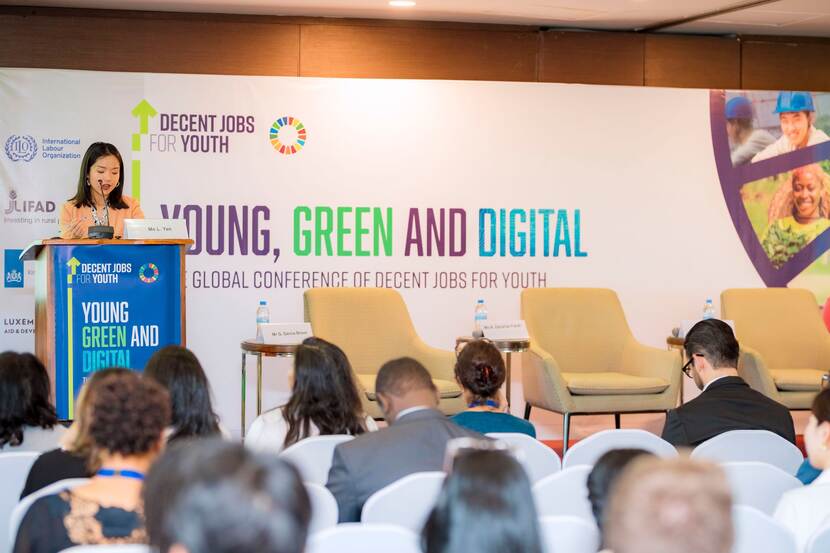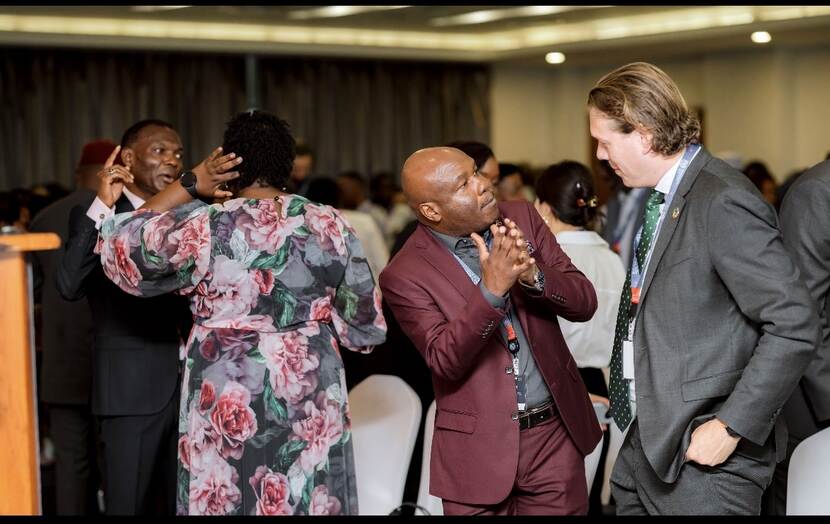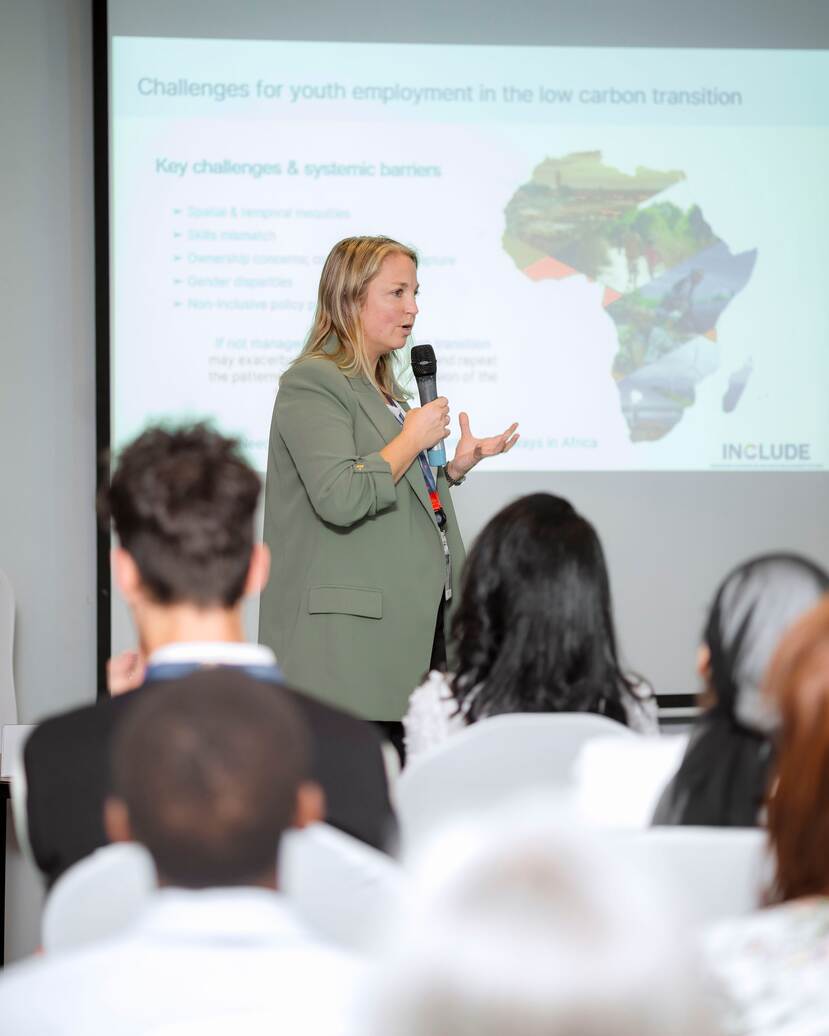Young, Green and Digital: Global Conference on Decent Jobs for Youth
On the 22nd and 23rd of May, the Young, Green and Digital: Global Conference on Decent Jobs for Youth took place in Rwanda. The conference revolved around opportunities for young people for accessing decent jobs, and how this is crucial for establishing social justice.

Young people between 15-24 are 3,5 times more likely to be unemployed when compared to adults. Moreover, the number of youth who are not in employment, education or any other form of training continues to rise; currently to around 269 million young people globally.
Jobs and Decent Jobs
The specific focus of this installment of the conference was the green and digital economy; two emerging economies which are especially relevant for developing countries. Following estimations of the International Labour Organization (ILO), these economies could provide up to 14.8 million jobs for young people by 2030.
However, it is crucial to recognize that ‘job creation’ and ‘decent job creation’ differs significantly. Till what extent are the created jobs sustainable, provide enough resources to sustain oneself, or provide acceptable job satisfaction?
To answer these questions, the narrative was to look at youth itself. Accelerating a green and digital transition that is fair and inclusive, and leaves no one behind, was considered imperative to make decent jobs for youth in the emerging economies a reality.

Meaningful youth participation
Naturally, when talking about fairness, inclusiveness and leaving no one behind, meaningful youth participation comes into play. Since the Dutch Ministry of Foreign Affairs has been a partner of Decent Jobs for Youth, it was good to see meaningful youth participation weaved throughout the conference by the myriad of contributions by youth itself.
The importance of meaningful youth participation was also emphasized in the opening and closing sessions. Panelists shared with the audience that youth should be acknowledged as leaders and partners, not mere beneficiaries. Additionally, it was emphasized that the advantages of meaningful participation for youth itself shouldn’t be understated either: it contributes to the skills development of youth and their self-perception
Research Presented During the Conference
Besides the myriad of sessions surrounding topics discussed above, the conference also provided a podium for the latest research to be presented. Let’s highlight two of the most relevant ones.

(Em)powering the Future
The first relevant research was presented by the INCLUDE Knowledge Platform and relates to a just low-carbon transition in Africa. According to the research, such a transition provides pathways for scaling up clean energy and for creating decent employment opportunities for youth and women. At the same time, it improves access to affordable and reliable electricity for large groups of people.
However, the research also acknowledged that it’s not as easy as that. Context plays an important role in establishing the just transition that is sought after. Recognizing the unique technical, social, economic, and political contexts, as well as national needs for development, are crucial to take into account – simply so that all stakeholders and affected communities are accounted for.
For Africa’s young men and women, a just transition requires investing in skills, gender equality and meaningful engagement in decision-making processes. As such, youth can embrace current employment opportunities and shape the future of work in the low-carbon economy.
Active labor market programs
A second relevant research was presented by the World Bank and the ILO, who conducted a comprehensive study on active labor market programs (ALMP) and their effectiveness.
Generally, it became evident that ALMPs have significant positive impacts on youth employment and their earnings. Over a span of thirty years, more recent programs have bigger impacts on average – even while evaluations have become more rigorous and prevalent over the past years.
While the research was very rich, one particularly interesting finding was that effective programs should include soft skills training and a form of certification. Learning soft skills (like presenting, debating, having an intercultural conversation, etc.) significantly increased the impact of ALMPs.
Additionally, by awarding certification after trainings and studies, the skills that are learned convert into something officially recognized by the organization providing training and beyond.
When looking at specific type of interventions, youth entrepreneurship and training programs (like Orange Corners) show the largest impacts. The research found that these programs deliver the skills, work experience, or financial support needed to enter wage- or self-employment.
Especially in low- and middle-income countries, entrepreneurship support and employment services show the larger impacts. In high-income countries, skills training, and wage subsidies take the upper hand.